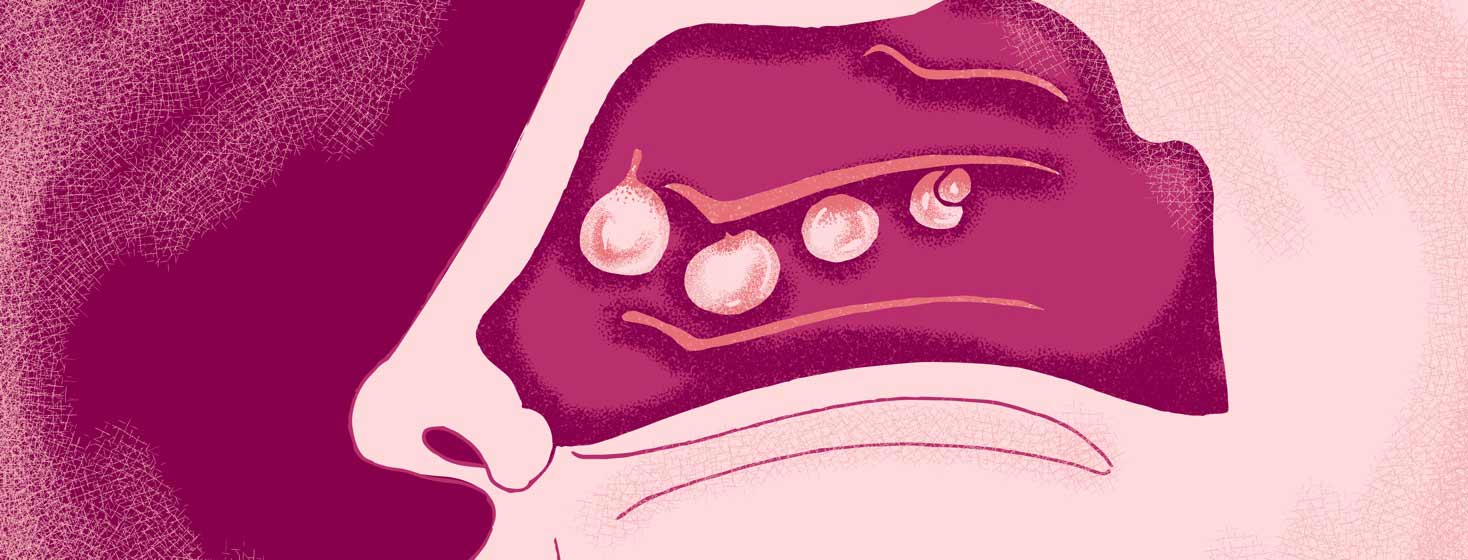Nasal Polyps
I recently set out on a quest to gain a bit of knowledge about nasal polyps and asthma. I was identified with polyps last year at a follow-up appointment with my ear, nose, and throat physician (ENT). I was shocked--however also pleased--to find out that they have since resolved. Honestly, I had no idea that these could be dramatically reduced and potentially resolve.
I had very limited knowledge about nasal polyps and their relation to asthma. I was already treating nasal inflammation and asthma-related inflammation through my biologic. I thought once you had them, they were here to stay. It turns out that nasal polyps can be treated and show signs of resolution. It is important to note that it does not mean that they will not return.
I decided to start my research with a few questions:
What are nasal polyps?
Nasal polyps are growths in the nasal cavity or sinuses and are often related to sinus disease. Some other interesting facts about nasal polyps include:1
- They are often discovered during an endoscopy.
- A result of inflammation in the lining of the sinuses.
- They are generally painless.
- May be either obstructive or nonobstructive.
- Contain inflammatory liquid.
What symptoms are associated with nasal polyps?
Some people who have nasal polyps are completely asymptomatic. For those who have symptoms associated with nasal polyps, these may include:1
- Nasal obstruction
- Nasal congestion
- Runny nose
- Loss of smell
- Altered taste
- Headaches
- Postnasal drip
How are nasal polyps and asthma connected?
Polyps are connected to inflammation and chronic sinusitis. Chronic sinusitis are sinuses that are inflamed and swollen for at least 12 weeks despite treatment attempts. Nasal polyps in correlation with chronic sinusitis is a known risk factor for asthma.There is also a correlation between, asthma, nasal polyps, and aspirin sensitivity. This is known as Samter’s Triad.1,2,3
How are they diagnosed?
Polyps can be seen on imaging CT scans or by endoscopy. In my case, they were identified in a follow-up appointment and seen on endoscopy. Further research is currently being conducted on why some people develop polyps and others do not. Inflammation may develop from the ethmoid sinuses and drain into the walls of the nasal cavities.2,3
What complications are associated with nasal polyps?
Infections, especially chronic sinus infections, have been associated with nasal polyps. Asthma exacerbations have also been associated with chronic sinusitis.2
How are they treated?
Polyps may be treated by treating the underlying inflammation, to reduce their size or even eliminate them. This may also include treating related conditions that contribute to inflammation. In some cases, surgery may be indicated to remove polyps.1
In my experience, I did not even know I had them. If you feel you have associated symptoms it is best to check with your care team. They will be able to provide you will the information, diagnostics, or discussion that you may find helpful. I would love to hear about your diagnosis or treatment experiences in the comments below.
Do you have nasal polyps and asthma? Share your experience with us.

Join the conversation